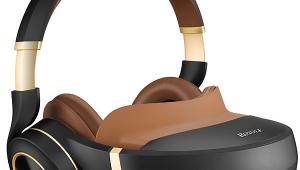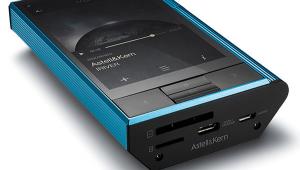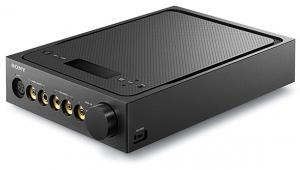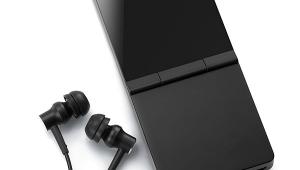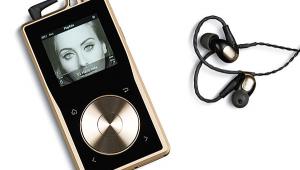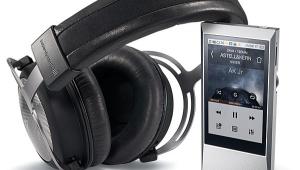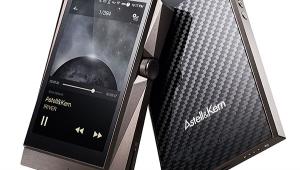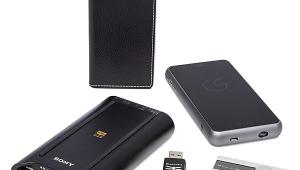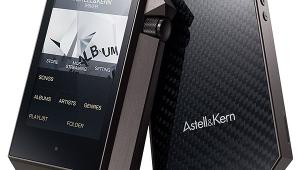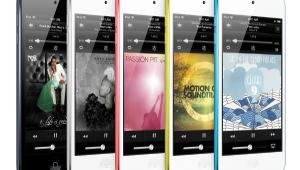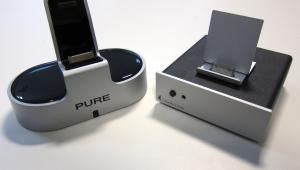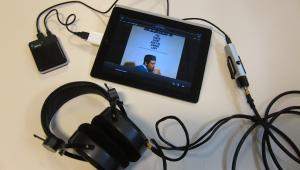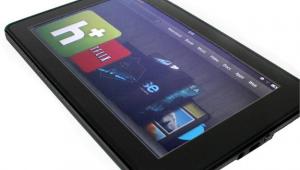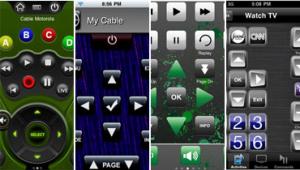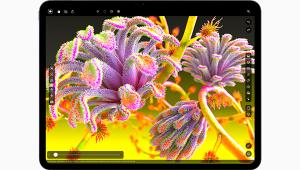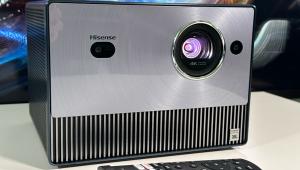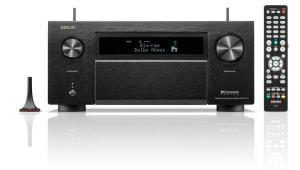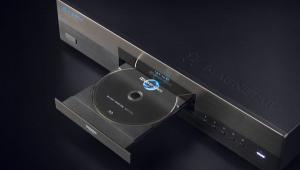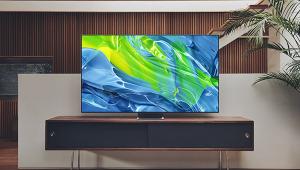Picking the Perfect Tablet Page 6
Magical floating screens, entertain me!
I'm of the opinion that the only thing that matters with a tablet is what you can do with it. All the other one-up specsmanship is too inside baseball for me - and I'm a tech nerd. I don't care if it's thinner, lighter, shinier, BeDazzled, or candied. If I can't watch reruns of Sports Night on it, it's a paperweight.
Fortunately, the last few months have changed the tablet landscape significantly in this regard. Netflix, despite some recent PR debacles, still reigns as the king of content. Hulu Plus, the odd pay-per-view-plus-advertising hybrid, offers current programming and an interesting mix of reruns. The iPad had both these services way before anyone else. Android tablets only started getting them in the past few months. The Tab still doesn't have Hulu.
Netflix
On the iPad, the picture quality of the shows and movies on Netflix, even in standard definition, is quite good.
On the Vizio, there is a decent amount of detail, but also a lot of jagged edges. Though it doesn't show up in the specs, the Vizio's screen has significant off-axis issues, so viewing angles are limited. Turn it slightly (to minimize glare, for example, because it's almost as reflective as the Fire), and you lose brightness, contrast, and color saturation. Not surprisingly, this is the only tablet here not to use an IPS (In-Plane Switching) or IPS-variant, which offer better viewing angles over other LCD technologies.
The Samsung looks great. Standard definition content looks highly detailed and as noise-free as is possible given the limited quality of the source material.
The Fire, as I found in my initial review, looks soft. Note that it has nearly the same resolution as the iPad, and is smaller, so if anything it should look more detailed. Apparently, a decent scaler wasn't included in the spec sheet.
Hulu Plus
It's more or less the same story with Hulu Plus: iPad looks good, Vizio looks detailed but has jaggies, Fire is soft. The Galaxy Tab doesn't currently have Hulu Plus. If it ever gets it, I'd bet the picture quality will look quite good, thanks to that device's quality scaling.
iTunes/Amazon Instant Video/Google Video
Here's the thing: Netflix and Hulu Plus are cool, but you can only use them if you have access to the Internet (admittedly easier with the 3G Tab and iPad). Their selection is also limited. What if you want to watch a show that's not available on these services? What if - and this is the BIG if - you want to watch Planes, Trains and Automobiles while you're in a plane, train, or automobile?
Maybe I'm an oddball here, but this is such an obvious and basic use for a tablet, I honestly can't figure out how this issue isn't more widely discussed. You see, unless you're using an iPad or a Fire, you don't have access to any downloadable content. You read that right.
So if you want to load up a few movies to watch on the plane, or to watch on the beach in Bora Bora, keep in mind that you can't do that with any tablet other than the iPad or the Fire. This seemed so odd to me, I spent hours researching trying to figure out what I was missing. Turns out, most of the "journalists" that cover tablets are clueless as to how people actually use these things. Their articles are so fixated on MHz, gigabytes and the miscellaneous guano of the hardware that they miss the fact that there's no software.
True, Samsung has tried to address the situation with their Media Hub, but the selection is incredibly limited. Lacking the resources of Samsung, Vizio is limited to Google Video via the Android Market (also available on the Tab and other Android tablets). This too, pales in comparison to the content offered by iTunes and Amazon.
So yes, technically you can download content to other tablets, but the selection is so paltry compared to iTunes/Amazon it's like limiting your rental video selection to one aisle at Blockbuster.
And that's the trick. All tablets can do tablety things like email, Facebook, and so on. Only the Fire and the iPad have access to significant content. The depth of shows and movies available on iTunes or through Amazon's Instant Video service is practically infinite. I'm sure there are some shows you can't find on one or the other (or both), but you can always find something you'll want to watch.
So that begs a question: if you want to get a tablet, why settle for one that doesn't give you access to all that content? The Fire and iPad do all the same things the Tab, the Nook, and all the countless other tablets do, plus they offer near-infinite content. How is that even a decision?
I'm sure the Galaxy Tab and Vizio Tablet tablet are fine products and all, but honestly, they just can't compete. This is a two-horse race, and even that's not entirely true.
iPad vs. Fire
There's a quote circulating the Interwebs, attributed to Einstein: "If you judge a fish by its ability to climb a tree, it will live its whole life believing that it is stupid." Now I doubt he actually said that, but it's a good line none the less. Comparing the iPad and the Fire is like comparing kittens and puppies. They're both generally awesome, but to fans of one, the other just poops on the rug.
And I don't get it. These two may be the same genus, but they are not remotely the same species. It comes down to what they're for. The iPad is a tablet computer, designed as a stylish and even more portable alternative to a laptop. For our purposes, it's a content provider, but of course it does far more than that. Streaming to an Apple TV is incredible, as is the iPad's ability to act as controller for iTunes. The iPad is a device first, and a content provider second. This is in line with Apple's general corporate identity: it's a hardware company that dabbles in content.
The Fire is the opposite. It is merely a portal to your content, and anything else it does is secondary. Everything about the Fire is about getting you content, and more of it. Links abound to bring you to the section of Amazon's store where you can buy more content. As the great prophet Carlin once said: a house is a place to keep your stuff, while you go out and get MORE STUFF. That's the Fire. It's a portable content holder that just happens to search the web and show all the puppy/baby pictures your friends and family put on Facebook. This, not coincidently, is in line with Amazon: a content company that dabbles in hardware. I'm not the first to point that out, but it fits.
To me, they're hardly comparable at all. I can't imagine anyone would cross-shop between the two. What is this pathological fixation on annointing a winner? These are two amazing products. If money's no object, get the iPad. It does a LOT more than the Fire, and can very nearly replace a computer in most people's homes.
But personally, I like the size of the Fire, and $200 is a hard price to beat. I bought one for both of those reasons. I know all of its limitations, and I think it's a great product because of its focus, not despite of it.
If I wanted to replace my laptop (I don't) or was more of an Applefanatic (I'm not) then maybe I'd get the iPad. I've wanted one since it came out, it's unquestionably brilliant. Give me $500, and I'll buy one right now.
So if you're looking for the perfect tablet, you have two choices. Strip away all the meaningless bull, and it comes down to this:
Want a big screen? Get the iPad
Only want to spend $200? Get the Fire
And that's so simple, it's perfect.
- Log in or register to post comments
